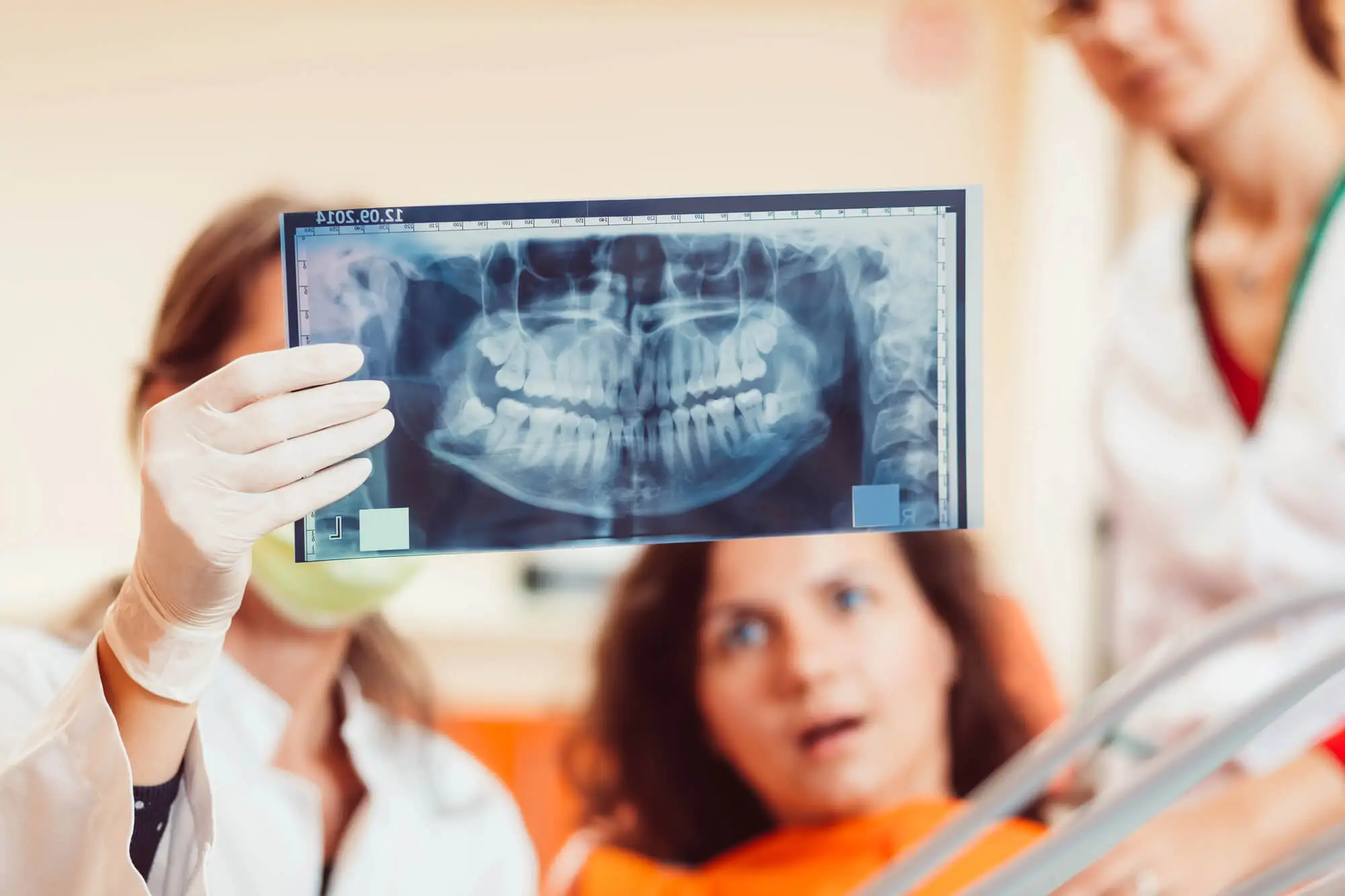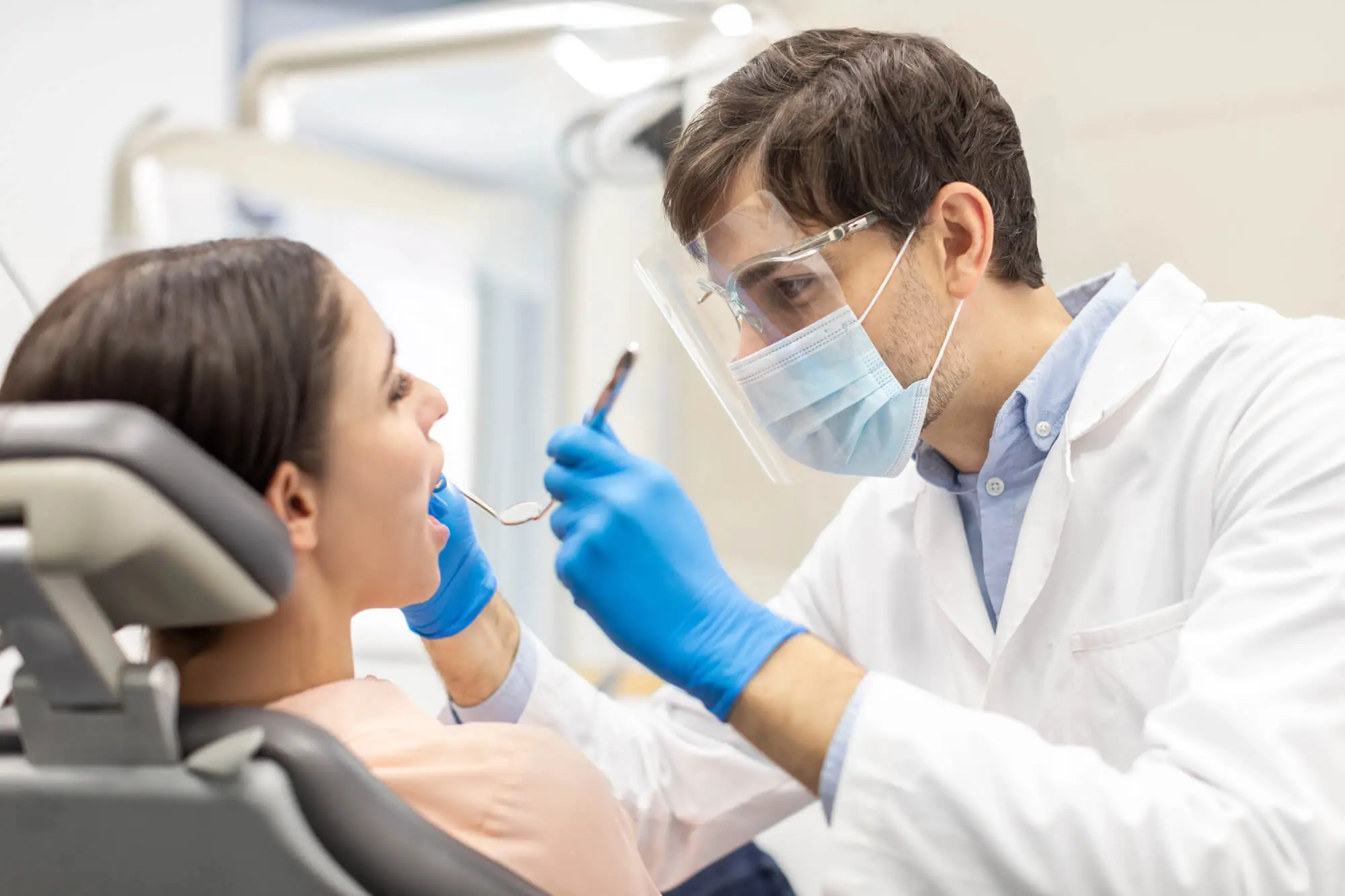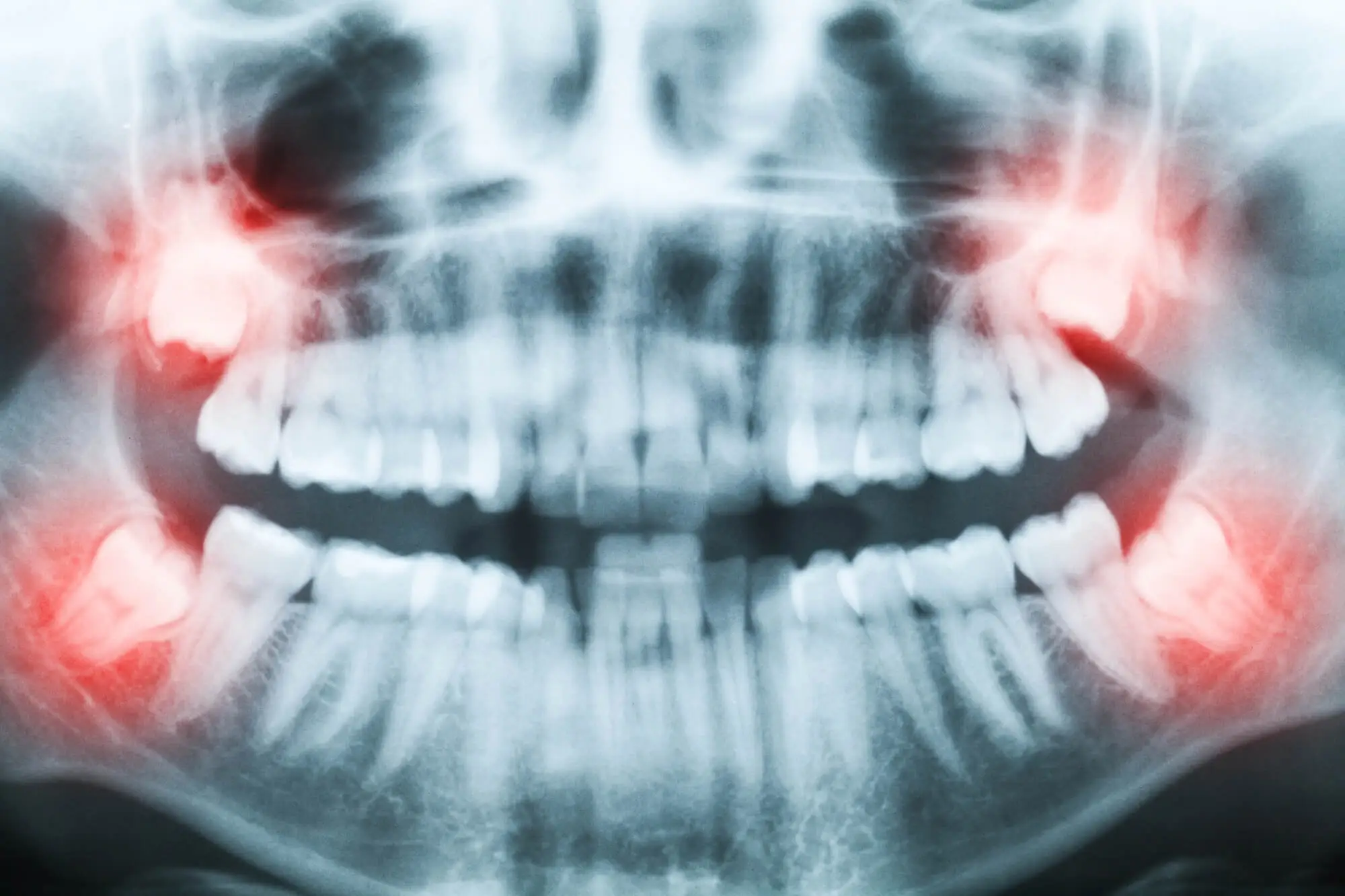
Wisdom teeth are as troublesome as they get. There’s not enough room for them; they have no purpose, and when they become impacted, they can lead to several issues beyond your smile's health. Impacted wisdom teeth must be removed promptly to prevent that, but you need to consult with a reliable oral surgeon before the procedure.
Improperly performed wisdom tooth removal can result in various issues, from a painful dry socket to irreversible nerve damage.

What Are Impacted Wisdom Teeth?
Wisdom teeth are the third set of molars in the back of your smile. They were crucial for breaking down food for our ancestors, but as we started consuming cooked produce—which tends to be softer—they became less fundamental. This caused our mandibles to shrink, leaving insufficient space for third molars to emerge.
When this happens, the lack of space can cause them to grow at odd angles or become trapped (impacted) under the gum and jawbone. Not everyone develops wisdom teeth, and they’re not always impacted. But when they do come, they typically appear between 17 and 25.
There are 4 types of impacted wisdom teeth depending on their position and angle in the jaw:
- Mesial Impaction: The tooth is tilted forward toward the front of the mouth (most common).
- Distal Impaction: The tooth is angled toward the back of the mouth (less common).
- Vertical Impaction: The tooth is upright but doesn't fully erupt due to a lack of space.
- Horizontal Impaction: The tooth lies completely on its side, pushing into the neighboring molar (most severe).
Why Is Wisdom Tooth Removal Important?
While not all wisdom teeth need to be removed, extraction is often the best option when impaction occurs because it can cause a wide range of problems. Some of these include:
1. Preventing Pain and Discomfort
One of the most common reasons for removing impacted wisdom teeth is to relieve pain. Impacted teeth can press against nearby teeth, nerves, or jaw structures, causing significant discomfort. The pressure can also lead to jaw stiffness, headaches, and earaches.
By removing the impacted tooth, patients often experience immediate relief from chronic pain and discomfort.
2. Reducing the Risk of Infection
When a wisdom tooth is partially erupted or trapped beneath the gum, it creates an opening where bacteria can easily enter. This can lead to pericoronitis, a painful infection of the gum tissue surrounding the tooth.
In more severe cases, the infection can spread to other areas of the mouth or even into the bloodstream. And while this infection can be treated with antibiotics, continuous use can lead to antibacterial resistance—all for a tooth you’re not using. For that reason, removal is always best.
3. Preventing Damage to Nearby Teeth
Impacted wisdom teeth can push against the second molars, causing damage to healthy teeth. This pressure may lead to erosion, weakening the enamel and increasing the risk of cavities and gum disease in adjacent teeth. So, by delaying a necessary removal, you may end up needing to sacrifice another tooth, too.
In some cases, it can even cause the neighboring teeth to shift out of alignment, undoing years of orthodontic work.
4. Avoiding Cyst and Tumor Formation
In some cases, an impacted wisdom tooth can develop a cyst—a fluid-filled sac that forms in the jawbone. Cysts can damage the jaw, teeth, and nerves if left untreated.
Though rare, these cysts can also develop into benign tumors, requiring more complex surgical procedures. Early removal of impacted wisdom teeth can prevent such growths and protect jawbone integrity.

Why Removal with an Oral Surgeon Is Key
A general dentist can remove some wisdom teeth, but when impaction occurs, choosing an oral and maxillofacial surgeon is critical.
Oral surgeons are dental specialists with 4–6 additional years of hospital-based surgical and anesthesia training after dental school. We are experts in managing complex extractions, especially those involving impacted or partially erupted teeth that lie close to nerves, sinuses, or bone structures.
This expert preparation helps significantly reduce risk during and after the procedure. While generally safe, there are some complications associated with wisdom teeth extraction, such as:
- Injury to the inferior alveolar nerve, which can cause temporary or permanent numbness in the lips, chin, or tongue
- Jaw fractures, especially in older adults with lower bone density
- Excessive bleeding or poor wound healing
- Dry socket, a painful condition where the blood clot dislodges from the socket
- Infection due to incomplete removal or poor aseptic technique
The worst thing is that some of these outcomes, like nerve damage, can be very painful and irreversible. An oral surgeon’s skill and precision significantly reduce the likelihood of these outcomes.
Additionally, patients tend to experience less trauma, faster healing, and better long-term outcomes during wisdom tooth removal with oral surgeons, as we’re highly experienced in performing these procedures efficiently and correctly.
Wisdom Teeth Removal with an Oral Surgeon: Ensure Your Peace of Mind
Perhaps the best benefit of finding an oral surgeon for wisdom tooth removal is the comfort it can give you.
Wisdom tooth extraction can feel intimidating, especially when the teeth are deeply embedded or close to vital structures. Having the procedure done by an oral surgeon gives patients peace of mind that they are in the most capable hands.
Symptoms of Impacted Wisdom Teeth
Sometimes impacted wisdom teeth are asymptomatic, and if they’re fully submerged inside your gums, you can go years without knowing of their existence. However, when symptoms do occur, they may include:
- Jaw pain or pressure
- Swollen or bleeding gums
- Bad breath or an unpleasant taste
- Difficulty opening the mouth
- Swelling around the jaw
- Headaches or earaches
- Crowding or shifting of nearby teeth
If you notice any of these issues, consult with a dentist who offers X-rays. Impacted wisdom teeth can lead to further issues, so prompt removal is key!

Find an Oral Surgeon to Remove Your Impacted Wisdom Teeth
Impacted wisdom teeth can grow at odd angles, get stuck under the gum line, or only partially break through the gums. Removing them is a proactive step toward preserving oral health and preventing future complications.
By having an oral surgeon remove your impacted wisdom teeth, you can ensure safety, precision, and proper healing. The specialists at Butura Oral & Dental Implant Surgery are trained to manage complex extractions and reduce risks like nerve damage, excessive bleeding, or jaw fractures. Contact us today and secure the best possible outcome with the experts!




